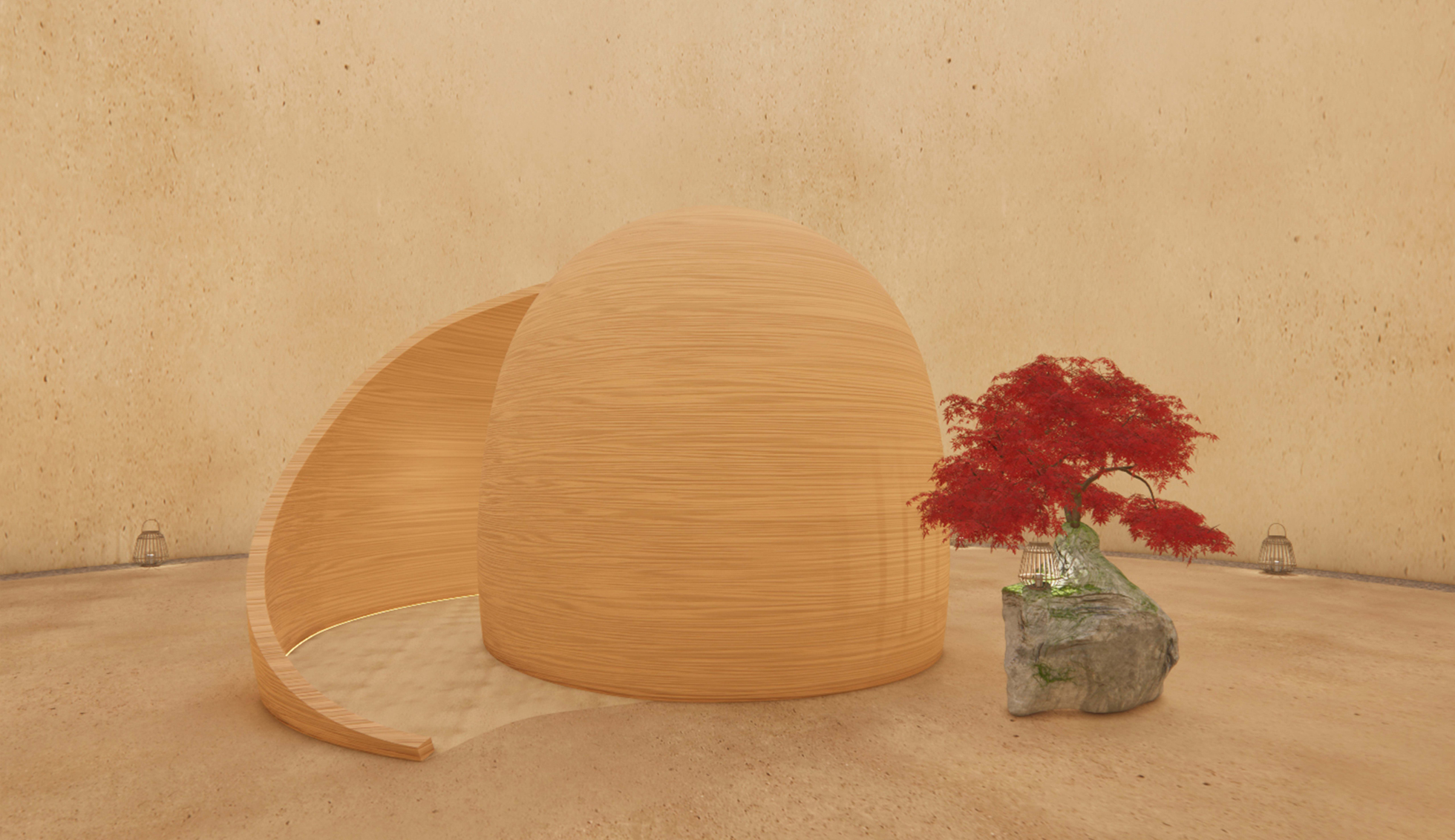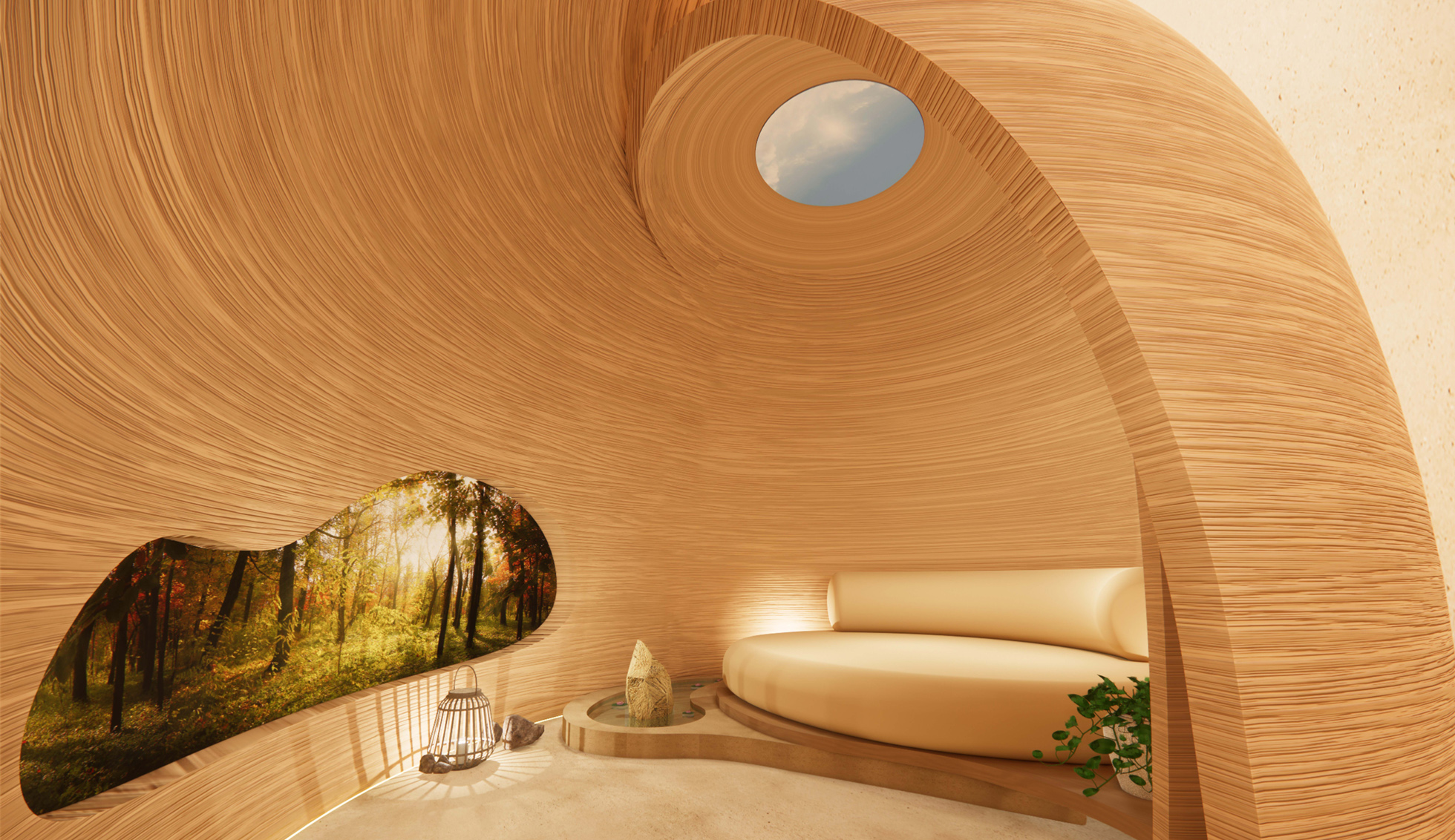BIO.POD, RESTORATIVE SPACE
Research project
Department of General Psychology of the University of Padua
Italy, 2022
12 mq


The BIO.POD is a calm and welcoming multisensory space designed to offer users restorative breaks. The hypothesis guiding the design is that a few minutes rest in it can bring measurable benefits on a physiological, cognitive and emotional level. The project grows from the desire to help people to “feel good”. It offers architectural form to the theories of biophilia (Wilson, 1984) and environmental restoration (Kaplan, 1995, Ulrich, 1983), from which it is possible to draw insights on which characteristics of the built environment facilitate destress and mental fatigue. The BIO.POD looks like a wooden shell. Its biomorphic shape, inspired by the shape of some mollusc shell, is associated with the perception of shelter and protection. The access through a gentle ramp emphasizes the sense of mystery and detachment from the surrounding environment. Inside, one lives a restorative immersive experience stimulating sight, hearing, touch and smell. The BIO.POD can be placed in commercial, residential and work environments. Particularly in the workplace, where stress is high, the positive value of micro-restorative experiences is widely recognized by environmental psychology’s research. A break in the BIO.POD improves the quality of life inside and outside the office.
THE EXPERIMENTATION Since Spring of 2022, an interdisciplinary research group (coordinated by Francesca Pazzaglia, full professor of General Psychology at the Department of General Psychology of the University of Padua and director of the Master in Architectural and Landscape Psychology), has been working to verify the effectiveness of the BIO.POD experience in regenerating the affective state (recovery from stress) and cognitive functioning (restoration of attentional resources). The team includes experts in environmental psychology, neuropsychology, computer engineering, architecture and design. The aim is to empirically test the hypothesis that a virtual stay of 10 minutes inside the BIO-POD environment can restore the state of well-being, in terms of stress reduction, increase in positive emotions and better functioning of attention. The end of data collection is scheduled for Summer 2023. The next phase involves the prototyping of the BIO-POD model which will prove to be more restorative, in order to verify its expected restorative effects in the real environment. In general terms, the study is part of the research in the field of environmental psychology, which aims to analyze the effective impact of the characteristics of the physical environment on individual and collective well-being. The approach adopted is interdisciplinary and based on empirical evidence. Specifically, the BIO-POD project intends to propose sustainable responses for the reduction of environmental stress, particularly aimed at workers operating in environments with a high risk of burnout or users of places subject to cognitive fatigue (for example in exhibition spaces where the BIO.POD can be used for the regeneration of attention impoverished by museum fatigue).On a broader reading, the BIO.POD investigates the relationship between Psychophysiological Well-Being, Architecture and Nature, a topic of great importance also for the environmental implications it brings with it.Through an evidence-based design oriented towards biophilia, architecture can simultaneously promote the well-being of People and Planet.
Credits: Giuliana Vittoria Salmaso with Leonardo Tizi and Mariarosaria Sannino.